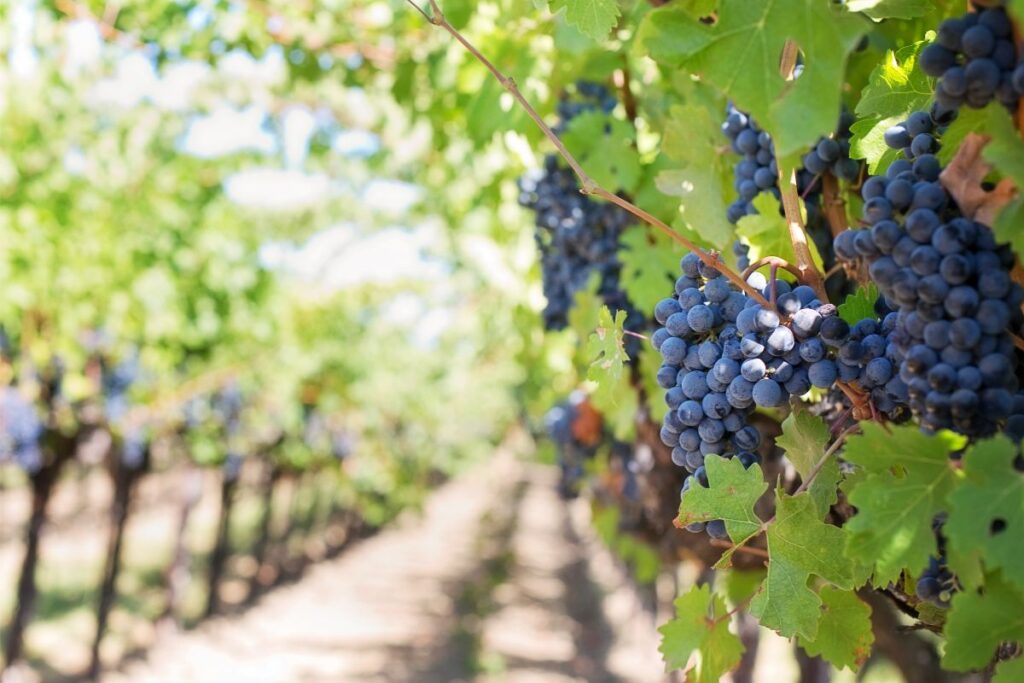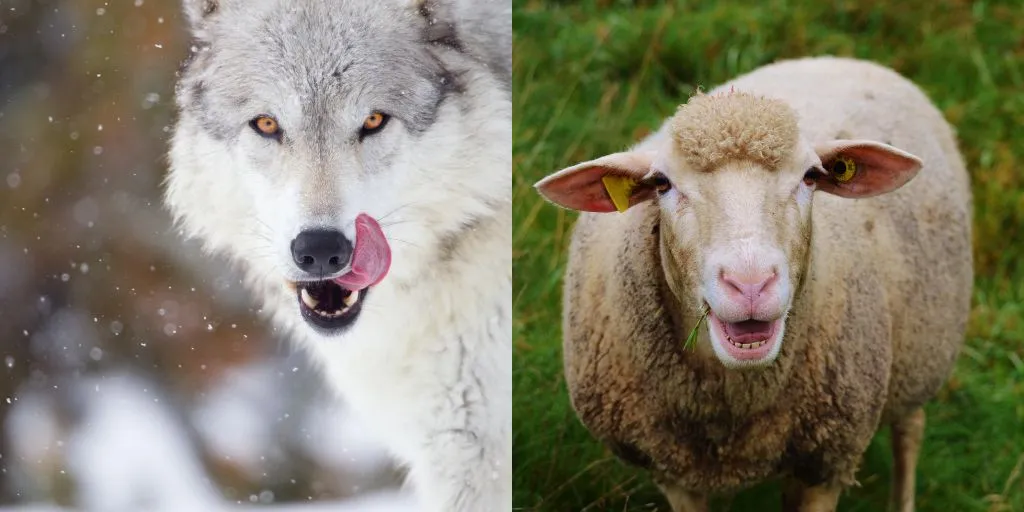It is astounding to witness the diverse dietary habits of animals. Being a part of this astonishing animal kingdom, foxes too, exhibit fascinating eating habits. Predominantly known as carnivores, their dietary palate is far more varied. Foxes, being swift, flexible and cunning, have adapted to an omnivorous way of life, deftly balancing the animal and plant kingdom on their platter.
Amid the veggies and fruits that they consume, one might wonder about their affection towards certain relished items. Among these curiosities, a frequently asked question is, do foxes eat grapes? Yes, foxes do eat grapes when they are available. However, like other foods, they consume grapes in moderation as part of a diverse diet.
Let us dive into the details of this compelling dietary aspect of foxes, their liking for fruits, and in particular, their consumption of grapes.
Understanding Fox’s Dietary Habits
While the fox is known to many as a predominantly meat-eating creature, it’s dietary habits are far more diverse. Foxes are, in fact, omnivores which means they eat a balanced diet of both plant and animal matter.
Their diet mainly consists of small mammals, birds, eggs, and insects. In addition, they also eat various types of fruits and vegetables. They are known to change their diet based on the season and availability of food. During spring and summer, when fruits and vegetables are in abundance, they form a significant part of their diet. During the colder months, these fruits and vegetables are hard to come by and foxes rely heavily on animal matter for their nutritional needs.
These nimble animals are also known to consume carrion, which is the decaying flesh of animals. They play a crucial role in maintaining the ecological balance by acting as scavengers. This varied diet not only ensures their survival in diverse habitats but also speaks volumes about their adaptability.
To put it plainly, a fox will eat just about anything it can get its paws on! This includes everything from tiny field mice to juicy berries, and yes, it includes grapes too! But what exactly is the role of fruits, and more specifically grapes, in a fox’s diet? Let’s explore this topic in more detail.
Foxes and Their Fruit Consumption
Interestingly, despite being known as carnivores, foxes have a fondness for various types of fruits. This fondness can play a significant role in their overall diet, especially during certain seasons when fruits are more readily available. While the incorporation of fruit in a fox’s diet can vary depending on the species and region, fruits are generally an important food source for these creatures.
Among the fruits that foxes consume, apples, plums, berries, and pears are some of the most common. These fruits are usually rich in sugars, fiber, and key nutrients that can provide the foxes with extra energy and health benefits. Foxes seem to consume these fruits both for their taste and for their nutritional content.
As for grapes, they are indeed a part of a fox’s fruit consumption. Foxes do eat grapes when they come across these in the wild or in residential areas. However, the frequency and quantity of grape consumption can vary based on individual foxes, their habits, and the availability of the fruit. The following section will provide more information on this matter.
Do Foxes Eat Grapes?

Now that we have established that foxes do enjoy a variety of fruits, let’s delve deeper into the discussion regarding foxes and grapes. From the surface, one might presume that the sweet, juicy flesh of a grape might be just the sort of treat a fox would love. And in many cases, that can be correct.
When available, foxes will gladly consume grapes. This could be in a wild setting, where the foxes happen to stumble upon grapevines, or in urban and suburban settings where grapes might be available in gardens or from food waste. This leads to a common scene in areas where humans and foxes coexist, where the latter are often seen foraging for easily accessible food, which can often include fruits like grapes.
It should, however, be noted that while grapes can provide some additional hydration and sugar for their diet, they should not become a staple in the fox’s food intake. This is due to the simple fact that like all other animals, foxes require a balanced diet. Too much of a single food item, whether it’s grapes or any other food, can lead to an imbalance in their nutrients intake, and could potentially lead to health issues in the long run.
In conclusion, do foxes eat grapes? Indeed, they do. But as with any other food item, moderation is key to ensuring they maintain a balanced diet. The section below will further discuss the impact of grapes on a fox’s diet.
The Impact of Grapes on Foxes’ Diet
Grapes, like many other fruits, can have a substantial impact on a fox’s diet. From a nutritional standpoint, they provide foxes with much needed hydration and natural sugars. These sugars provide energy and help in maintaining their active and energetic lifestyle. In addition, grapes also contain nutrients such as vitamins C and K which are beneficial for the health of any creature, including foxes.
Nevertheless, despite these benefits, grapes should not be a significant part of a fox’s diet. The natural sugar in grapes, while beneficial in moderate amounts, can be harmful if consumed excessively. Overeating grapes can lead to digestive problems, obesity, or other health issues in foxes. In the wild, a fox’s diet is perfectly balanced with the right quantities of fruits, meat, and other food items they eat. But, if they get access to an excessive amount of one specific food like grapes, it can lead to an imbalance in their diet.
Another point to consider is that while wild foxes eat grapes, not every grape is safe for them to consume. Fermented grapes can cause serious health issues for foxes. It is, therefore, crucial that foxes do not have access to fermented grapes.
So, while grapes do add variety to a fox’s diet and provide additional hydration and nutrients, they should be consumed in moderation. The same principle applies to any other fruit or food item foxes eat. Too much of one thing can lead to an unhealthy diet and potential health issues. Therefore it is advisable to let nature take its course when it comes to deciding what foxes should eat.
What Humans Can Do
The presence of foxes in our environment can bring joy and intrigue. These beautiful creatures are a sight to behold and their behaviors can be fascinating to observe. Many individuals tend to develop a fondness for these creatures and might feel inclined to feed them. If you do come across a wild fox, it’s important to remember that feeding them can do more harm than good.
Feeding foxes can disrupt their natural diet, make them reliant on humans for food, and cause them to lose their fear of humans – which can be problematic for both the fox and humans alike. Additionally, providing foxes with excessive access to certain foods, like grapes, can disrupt their diet and lead to health issues.
If you come across a fox in your garden and have the urge to feed it, stick to providing water and perhaps the occasional small amount of boiled eggs, or meat. These are closer to their natural diet and less likely to cause harm. Furthermore, it is crucial to clean up any food waste, especially fruits like grapes, that could harm foxes by providing them with an unbalanced diet or could potentially be fermented and cause serious health issues.
In conclusion, it is best to enjoy the presence of foxes from a distance and let these agile creatures find their own food. While they are capable of eating a variety of foods, including grapes, a fox’s diet must remain balanced and comprised of natural food sources, ensuring their health, and preserving the delicate balance of the ecosystem.
Conclusion
From dawn to dusk, a fox’s diet varies vastly, encompassing an array of foods from different categories. Their eclectic eating habits, in part, contribute to their successful survival in diverse habitats. From juicy mice to crunchy insects and sweet fruits, a myriad of fares find their place in a fox’s meal.
Their fruit consumption is a testament to their omnivorous diet and their adaptability to the availability of food in various seasons. Apples, berries, pears, and plums are their preferred fruity treats. And answering the question we started with, yes, foxes do eat grapes. However, their intake depends on individual foxes, their habits, access, and the availability of the fruit.
Do foxes eat grapes? Yes, they do. However, just because they can, doesn’t mean they should, at least not in large quantities. A fox’s diet, like any animal’s diet, should remain balanced. Grapes, though a source of hydration and natural sugars, should be consumed in moderation like any other food. Too many grapes can lead to an imbalance in their diet and potentially cause health issues.
As responsible humans, our role is to respect nature, and not disrupt the delicate dietary balance of these creatures. Observing them from a distance, without intervention, helps to maintain eco-balance and allows us to witness the fascinating life of foxes in its most authentic form.
Now, let’s explore a few common queries that people have about foxes and their diet, including their relationship with grapes.
Do Foxes Eat Grapes – Frequently Asked Questions (FAQ)
What are foxes’ favorite fruits?
Foxes enjoy a variety of fruits. Some of their favorites include apples, berries, pears, and plums. These provide them with essential nutrients and add variety to their predominantly carnivorous diet.
Should I leave grapes for foxes?
While foxes can eat grapes, it is not recommended to intentionally leave them out. This can disrupt their natural diet and make them reliant on human-provided food, potentially causing more harm than good.









